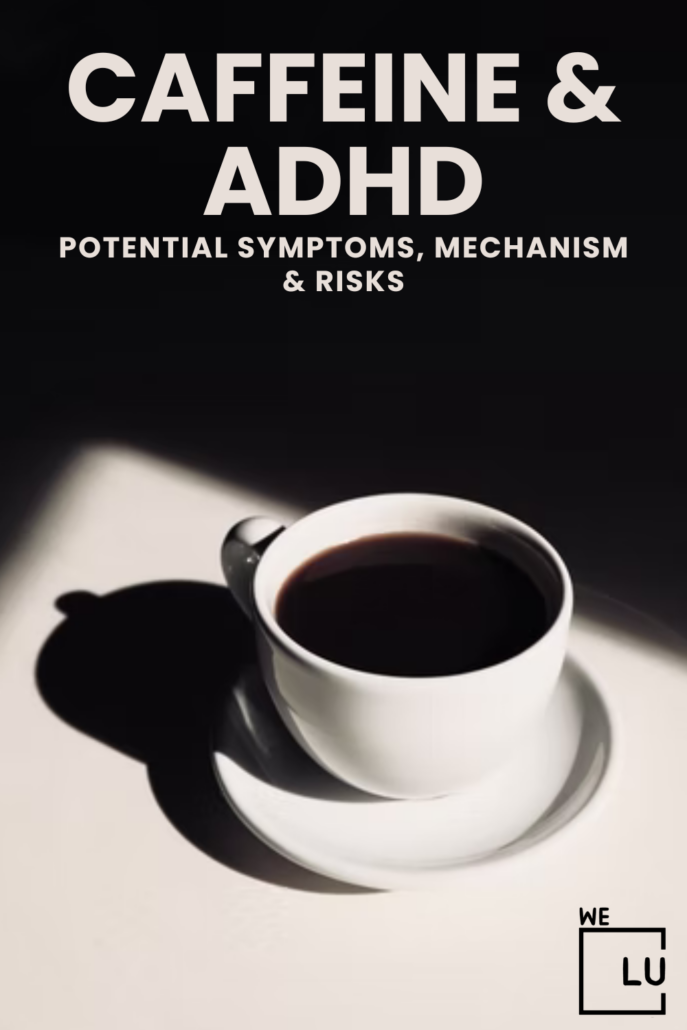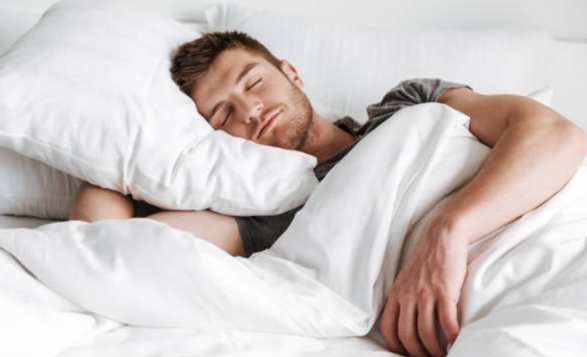Caffeine and ADHD Overview
Caffeine, a widely consumed stimulant, has been a subject of interest and debate when it comes to its effects on individuals with Attention Deficit Hyperactivity Disorder (ADHD). ADHD, a neurodevelopmental disorder characterized by difficulties in attention, hyperactivity, and impulsivity, affects millions of children and adults worldwide. As a popular and easily accessible substance, caffeine has garnered attention as a potential aid or detriment to managing ADHD symptoms.
In this article, we delve into the complex relationship between caffeine and ADHD, exploring the scientific research surrounding its impact on individuals with ADHD. We will examine the potential benefits, drawbacks, and considerations that arise when caffeine enters the equation.
Does Caffeine Help ADHD Symptoms?
The effects of caffeine on ADHD symptoms are a subject of ongoing research and individual variability. While some individuals with ADHD report positive effects from consuming caffeine, the overall impact can vary from person to person. Here are some key points to consider regarding the potential effects of caffeine on ADHD symptoms:
- Increased Alertness and Focus: Caffeine is a stimulant that can increase alertness and temporarily enhance focus and attention. Some individuals with ADHD may find that consuming caffeine helps them feel more awake and focused, potentially improving their ability to concentrate on tasks.
- Cognitive Performance: Caffeine has been shown to improve certain cognitive functions, such as working memory and response inhibition, which are areas of difficulty for individuals with ADHD. These cognitive enhancements may contribute to better task performance and productivity.
- Energy and Motivation: Caffeine can provide a boost of energy and increase motivation, which may be particularly beneficial for individuals with ADHD who often experience low energy levels and struggle with initiating and sustaining tasks.
- Short-Term Effects: The effects of caffeine are generally short-lived and vary in duration and intensity depending on factors such as dosage, tolerance, and individual response. Some individuals may experience a rapid decline in the positive effects of caffeine, which may require frequent consumption to maintain the desired benefits.
Caffeine is not a substitute for evidence-based treatments for ADHD, such as medication, therapy, and lifestyle adjustments. While caffeine may provide temporary relief from certain symptoms, it does not address the underlying neurodevelopmental factors associated with ADHD.


Skip To:
Learn More:
Get Help. Get Better. Get Your Life Back.
Searching for Accredited Dual Diagnosis Mental Health Centers Near You?
Even if therapy failed previously, or are in the middle of a difficult crisis, we stand ready to support you. Our trusted behavioral health specialists will not give up on you. When you feel ready or just want someone to speak to about counseling alternatives to change your life call us. Even if we cannot assist you, we will lead you to wherever you can get support. There is no obligation. Call our hotline today.
FREE 24/7 Dual Diagnosis Mental Health Services HotlineADHD Fact Sheet
Prevalence: ADHD is one of the most common neurodevelopmental disorders, affecting approximately 5-10% of children and 2-5% of adults worldwide. It is more commonly diagnosed in males than females.
Core Symptoms: The core symptoms of ADHD include inattention, hyperactivity, and impulsivity. Individuals with ADHD may have difficulty sustaining attention, organizing tasks, following instructions, sitting still, and controlling impulses.
ADHD is categorized into three subtypes:
a. Predominantly Inattentive Presentation: Primarily characterized by difficulties with attention and organization.
b. Predominantly Hyperactive-Impulsive Presentation: Primarily characterized by hyperactivity and impulsivity.
c. Combined Presentation: Displays symptoms of both inattention and hyperactivity-impulsivity.
Diagnosis of ADHD: This involves a comprehensive evaluation, including interviews with the individual, parents (for children), and teachers or other relevant observers. The Diagnostic and Statistical Manual of Mental Disorders (DSM-5) criteria are commonly used for diagnosis.
Long-Term Outlook: With appropriate diagnosis, treatment, and support, individuals with ADHD can lead fulfilling lives. Early intervention and ongoing management can significantly reduce the impact of symptoms and improve overall functioning.
Co-occurring Conditions: ADHD often coexists with other conditions such as learning disabilities, anxiety disorders, depression, oppositional defiant disorder (ODD), and conduct disorder (CD). These comorbidities can further complicate diagnosis and treatment.
ADHD and Caffeine Statistics
Attention Deficit Hyperactivity Disorder (ADHD) affects individuals of all ages, posing challenges in attention, hyperactivity, and impulsivity. As the search for effective management strategies continues, the relationship between caffeine and ADHD has become a subject of interest, prompting a closer examination of the relevant statistics and insights.
In this article, we delve into the realm of caffeine ADHD statistics, shedding light on the prevalence of ADHD, patterns of caffeine consumption, and the existing knowledge surrounding their association. By exploring the available data, we aim to provide a clearer understanding of the landscape, empowering individuals with ADHD, their families, and healthcare professionals with valuable insights.
- Prevalence of ADHD: According to the American Psychiatric Association (APA), ADHD is estimated to affect approximately 5-10% of children and about 2-5% of adults worldwide. However, prevalence rates may vary across different studies and populations.
- Caffeine Consumption: Caffeine is one of the most commonly consumed psychoactive substances globally. It is found in various beverages and food products, including coffee, tea, energy drinks, soda, and chocolate. Its popularity can be attributed to its stimulating effects and ability to increase alertness and reduce fatigue.
- Association between Caffeine and ADHD: The relationship between caffeine ADHD is complex and continues to be studied. Some individuals with ADHD self-report using caffeine as a means to manage their symptoms and improve focus and attention. However, scientific research on the specific effects of caffeine on ADHD symptoms is still evolving, and more rigorous studies are needed to establish clear conclusions.
- Impact on Symptoms: Individual responses to caffeine can vary widely. While some individuals with ADHD may experience temporary improvements in alertness, focus, and cognitive performance after consuming caffeine, others may not notice significant changes or may even experience negative side effects, such as increased restlessness or anxiety.
8.7 Million
In 2019, the number of visits to physician offices with attention deficit disorder as the primary diagnosis was 8.7 million.
Source: NIMH
9.5%
Approximately 9.5% of American adults, ages 18 and over, will suffer from a depressive illness (major depression, bipolar disorder, or dysthymia) each year.
Source: NIMH
70-80%
The heritability of ADHD, estimated to be around 70-80%, further supports the notion that genetic factors play a substantial role in its development.
Source: NIMH
ADHD Caffeine Sleepy Side Effects
Consuming caffeine can have side effects on sleep in individuals with ADHD, leading to various challenges and disruptions. One common side effect is insomnia, where caffeine interferes with the ability to fall asleep or stay asleep. Individuals who consume caffeine close to bedtime may find it difficult to initiate sleep, resulting in decreased sleep quality and restlessness throughout the night.
Caffeine can also disrupt sleep patterns by altering the timing and duration of sleep stages. This can lead to fragmented sleep, frequent awakenings during the night, and an overall feeling of unrestedness upon waking. As a result, individuals with ADHD may experience decreased sleep efficiency, meaning they spend less time asleep relative to the total time spent in bed.

Interestingly, some individuals with ADHD may experience increased daytime sleepiness after consuming caffeine. This can occur when the stimulating effects of caffeine wear off, leading to a “crash” or rebound effect that exacerbates feelings of fatigue and drowsiness. Thus, rather than promoting wakefulness, caffeine can paradoxically contribute to daytime sleepiness in certain individuals with ADHD.
In addition to these sleep-related side effects, caffeine and ADHD have been reported to worsen Restless Legs Syndrome (RLS) symptoms in some individuals with ADHD. RLS is a neurological disorder characterized by an irresistible urge to move the legs, often accompanied by uncomfortable sensations. When caffeine and ADHD exacerbates RLS symptoms, it further disrupts sleep and can contribute to daytime sleepiness and impaired overall well-being.

End the Emotional Pain. Get Your Life Back.
Feeling Depressed, Anxious or Struggling with Mental Health Illness? Get Safe Comfortable Mental Health Dual Diagnosis High-Quality Therapy From Counselors That Care. Begin Your Recovery Now.
Hotline (855) 940-6125How Does Caffeine Affect ADHD?
The effects of caffeine and ADHD are complex and can vary from person to person. Here are some ways in which caffeine may affect individuals with ADHD:
- Increased Alertness and Focus: Caffeine is a central nervous system stimulant that can enhance alertness and temporarily improve focus and attention. Some individuals with ADHD may find that consuming caffeine helps them feel more awake and focused, potentially improving their ability to concentrate on tasks.
- Enhanced Cognitive Performance: Caffeine has been shown to have positive effects on certain cognitive functions, such as working memory, response inhibition, and processing speed. These cognitive enhancements may contribute to better task performance and productivity in individuals with ADHD.
- Mood and Energy Regulation: Caffeine can influence mood and energy levels. It may provide a temporary boost of energy and motivation, which can be beneficial for individuals with ADHD who often experience low energy and motivation. However, the effects on mood can vary, and some individuals may experience increased restlessness or anxiety as a result of caffeine consumption.
- Temporary Symptom Relief: Some individuals with ADHD may report that caffeine helps alleviate certain ADHD symptoms, such as inattentiveness or mental sluggishness. The stimulating effects of caffeine can provide a short-term improvement in cognitive functioning and attention, leading to a perceived reduction in symptoms.
- Sleep Disruption and Side Effects: Caffeine is known to interfere with sleep, and individuals with ADHD may be more sensitive to its sleep-disrupting effects. Consumption of caffeine, particularly in the evening or close to bedtime, can lead to difficulty falling asleep or maintaining sleep, resulting in poorer overall sleep quality. Additionally, excessive caffeine intake can contribute to other side effects such as increased heart rate, jitteriness, or gastrointestinal discomfort.
The effects of caffeine and ADHD can vary among individuals, and some individuals may not experience significant benefits or may even experience negative side effects. The sensitivity to caffeine, optimal dosage, and timing of consumption can differ from person to person. It’s recommended to consult with a healthcare professional, such as a physician or psychiatrist, to assess individual needs and determine whether caffeine is a suitable strategy for managing ADHD symptoms.
First-class Facilities & Amenities
World-class High-Quality Mental Health Services & Behavioral Health Substance Abuse Treatment
Rehab Centers TourRenowned Mental Health Centers. Serene Private Facilities. Inpatient Rehab Programs Vary.
Mental Health Helpline (855) 940-6125Proven recovery success experience, backed by a Team w/ History of:
15+
Years of Unified Experience
100s
5-Star Reviews Across Our Centers
10K
Recovery Successes
- Comprehensive Dual-Diagnosis Treatment
- Complimentary Family & Alumni Programs
- Coaching, Recovery & Development Events
- Comfortable Onsite Medical Detox Center
Caffeine Opposite Effect ADHD
In some cases, individuals with ADHD may experience the opposite effect from consuming caffeine compared to the desired outcomes. Instead of experiencing increased focus and alertness, they may have a paradoxical response to caffeine, leading to increased restlessness, anxiety, or even worsened ADHD symptoms. This phenomenon is commonly referred to as the “opposite effect” of caffeine in individuals with ADHD.

The reasons behind this opposite effect are not fully understood, and individual variability plays a significant role. It is hypothesized that the stimulant properties of caffeine may interact with the unique neurobiology of individuals with ADHD, resulting in an atypical response. Additionally, factors such as underlying anxiety or sensitivity to caffeine may contribute to this paradoxical reaction.
When individuals with ADHD experience the opposite effect of caffeine, it can manifest as increased hyperactivity, jitteriness, difficulty concentrating, or a racing mind. These symptoms can be distressing and counterproductive to the desired outcomes of improved focus and attention.
It is crucial for individuals with ADHD to be aware of their individual response to caffeine and pay attention to how it affects their symptoms. It may be necessary to adjust caffeine consumption or consider alternative strategies for managing ADHD symptoms.
World-class, Accredited, 5-Star Reviewed, Effective Mental Health Dual Diagnosis Programs. Complete Integrated Inpatient Rehab with Free Post Discharge Therapy Planning.
CALL (855) 940-6125End the Emotional Pain Rollercoaster. Gain Stability & Happiness Through Recovery Treatment. Start Mental Health Counseling Today. Get Free No-obligation Guidance by Behaviroal Health Specialists Who Understand Mental Health Recovery.
Risks of Caffeine and ADHD
While caffeine may offer potential benefits for some individuals with ADHD, it is crucial to be aware of the potential risks and considerations associated with its use. Here are some key risks to keep in mind:
- Sleep Disturbances: Caffeine is a stimulant that can interfere with sleep, and individuals with ADHD may already be more susceptible to sleep difficulties. Consuming caffeine, especially in the evening or close to bedtime, can lead to insomnia or disrupted sleep patterns, exacerbating existing sleep problems.
- Increased Anxiety and Restlessness: Caffeine can stimulate the central nervous system, leading to increased heart rate, jitteriness, and anxiety. Individuals with ADHD who are already prone to anxiety or restlessness may be more sensitive to these effects, potentially worsening their symptoms or overall well-being.
- Dependence and Tolerance: Regular caffeine consumption can lead to tolerance, where larger amounts are needed to achieve the same effects. This can result in a cycle of increasing caffeine intake, potentially leading to dependence. Dependence on caffeine can be problematic, as sudden cessation or withdrawal can cause symptoms such as headaches, fatigue, and irritability.
- Interference with Medications: Caffeine may interact with certain medications commonly used to treat ADHD, such as stimulant medications or non-stimulant medications like atomoxetine. It is important to consult with a healthcare professional to understand potential interactions and adjust medication or caffeine intake accordingly.
- Nutritional Considerations: Caffeine can impact appetite and may suppress hunger or interfere with proper nutrition, especially if it leads to reduced food intake or inadequate nutrient absorption. Maintaining a balanced diet is crucial for overall health and well-being, including for individuals with ADHD.
- Individual Sensitivity and Variability: Each person’s response to caffeine can vary due to genetics, age, overall health, and individual sensitivity. What works for one person with ADHD may not have the same effect or may even be detrimental for another. Monitoring individual responses to caffeine and making informed decisions based on personal experiences is essential.
It is advisable to consult with a healthcare professional, such as a physician or psychiatrist, before incorporating caffeine into an ADHD management plan. They can provide personalized guidance, considering individual needs, potential risks, and considerations, and help determine an appropriate approach for effectively managing symptoms.
Experience Transformative Recovery at the We Level Up Treatment Center.
See our authentic success stories. Get inspired. Get the help you deserve.



Start a New Life
Begin with a free call to a behavioral health treatment advisor. Learn more about our dual-diagnosis programs. The We Level Up treatment center network delivers recovery programs that vary by each treatment facility. Call to learn more.
- Personalized Care
- Caring Accountable Staff
- World-class Amenities
- Licensed & Accredited
- Renowned w/ 5-Star Reviews
We’ll Call You
Popular Caffeine and ADHD FAQs
-
Does caffeine help with ADHD?
Caffeine can have varying effects on individuals with ADHD.
-
Does caffeine make people with ADHD tired?
Caffeine can sometimes make people with ADHD feel tired.
-
Does caffeine have no effect?
Caffeine may have no significant effect on individuals with ADHD.
-
Does caffeine make ADHD worse?
Caffeine can potentially worsen symptoms in some individuals with ADHD.
Watch How to Improve Mental Health? 8 Steps & Tips for Maintaining Your Mental Wellbeing. Find Top Mental Health Tips & Anxiety Tips Advice from a Therapist.
Search Drug & Alcohol Rehab / Detox & Mental Health Caffeine and ADHD Topics & Resources
Sources
[1] What is ADHD? | CDC Examining ADD vs ADHD Learn More: Caffeine and ADHD
[2] NIMH » Mental Illness (nih.gov) ADD vs ADHD Review Learn More: Caffeine and ADHD
[3] NIMH » Attention-Deficit/Hyperactivity Disorder (ADHD) (nih.gov) Learn More: Caffeine and ADHD
[4] Attention Deficit Hyperactivity Disorder – StatPearls – NCBI Bookshelf (nih.gov) ADD vs ADHD Adults Review. Learn More: Caffeine and ADHD
[5] ADHD: Reviewing the Causes and Evaluating Solutions – PMC (nih.gov) ADD vs ADHD in Adults Causes. Learn More: Caffeine and ADHD
[6] What is mental health? Evidence towards a new definition from a mixed methods multidisciplinary international survey – PMC (nih.gov) ADD vs ADHD Symptoms Learn More: Caffeine and ADHD
[7] COMMON MENTAL HEALTH DISORDERS – Common Mental Health Disorders – NCBI Bookshelf (nih.gov) ADD vs ADHD in Female Adults Learn More: Caffeine and ADHD
[8] About Mental Health (cdc.gov) Learn More: Caffeine and ADHD
[9] Information about Mental Illness and the Brain – NIH Curriculum Supplement Series – NCBI Bookshelf Learn More: Caffeine and ADHD
[10] Effective Mood And Personality Disorder Treatment (welevelupnj.com) Learn More: Caffeine and ADHD